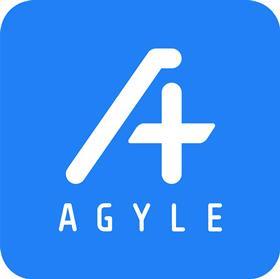Capabilities that can be woven into solutions, such as greater use of data and AI to support decision-making, have increased in scope, scale and complexity. This user-centred disruption is redefining the healthcare user experience
When Agyle’s software first came to the NHS around 15 years ago, the concept of designing user interfaces around the needs of customers was quite revolutionary within the NHS. User-centred design has long represented the norm in many other industries, with Agyle’s electronic document management systems quickly gaining a foothold with its highly satisfied user base yearning for similarly easy-to-use software.
The reality remains, however, that this is not a common experience for many NHS organisations. Users are rarely asked what they want their systems to do and how they wish to interact with them. Most healthcare users will unfortunately attest to the fact that experiences remain clunky, disconnected and often cost a fortune.
It was clear then that a system that was intuitive to use, minimised superfluous information and that was highly configurable would strike a chord with NHS users. Fifteen years on, the same core consultative approach of co-developing clinical systems with the end user continues to reap dividends for users of Agyle.
The process has unsurprisingly evolved quite a lot since. For one, the capabilities that can be weaved into solutions have increased in scope, scale and complexity. Greater use of data and AI to support decision-making has grown exponentially in recent years. The questions put to prospective users have shifted from “what data do you really need?” towards “how could applying artificial intelligence and machine learning improve quality and/or efficiency in this process?”
Better informed clinicians and carers with better supported ways of working will ultimately deliver more cohesive, joined-up and well planned care
Agyle is part of a new breed of suppliers that are working hard to challenge this status quo. Not only do suppliers need to deliver more, but the NHS must allow systems like Agyle to flourish and gain the traction its users demand.
The future of Agyle, building on the foundations of user experience-led design, looks to be critical in supporting the aims of the NHS. Having been supporting mental health and community care for a number of years, delivery of the first truly modern mental health electronic patient record is close for Agyle.
Engaging with clinical, operational and informatics experts across the breadth of healthcare, Agyle will be launching its person-centred platform to support integrated care system wide working. The ambition is holistic care, promoting preventive care and a deeper understanding of the underlying person’s circumstances. Better informed clinicians and carers with better supported ways of working will ultimately deliver more cohesive, joined-up and well planned care.
Having also just celebrated a hugely successful one year anniversary in an NHS Emergency Department, Agyle is moving forward at pace across care sectors. Our clients are delivering the first truly regional cloud hosted ED system across an ICS. This will represent an entire region working seamlessly across organisations, managing capacity with full regional visibility. Simultaneously, the system has been able to make countless improvements to safety, speed and security, as well as digitising paper processes.
Combined with the newly launched patient engagement platform and virtual ward capabilities, Agyle and its wide-ranging modular platform continues to make strides at redefining the patient and healthcare user experience.


























